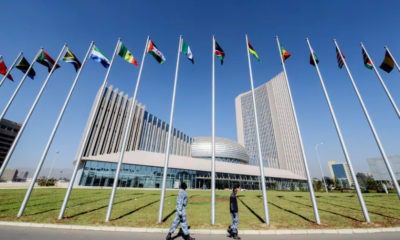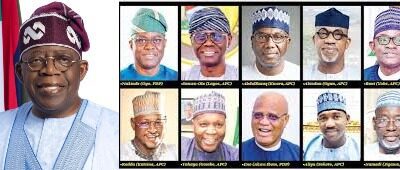National Issues
Psychologist’s Perspective On Police/DSS, Judges, And Prison Officers’ Complex Web Of Interests Unraveling Nigerian Institutions’ Ineffectiveness -By John Egbeazien Oshodi
Addressing these challenges requires comprehensive modifications and an unwavering commitment from the government and institutions. Measures to improve transparency, enhance accountability, and increase the salaries of public servants should be considered. Additionally, fostering a culture of integrity and ethics within the legal and law enforcement systems is crucial to restoring public trust.

The leadership of the Nigeria Bar Association (NBA) has been criticized for its inability to unite and take effective action. Infighting within the NBA has further weakened its power to pressure the government into respecting the laws of the land. As a result, citizens perceive the NBA as unable to advocate for justice and accountability.
Several important institutions in Nigeria are shrouded in suspicion, contributing to a culture of dishonesty, bitterness, and ineffectiveness. This common misconception undermines Nigeria’s democratic institutions and leaves the average citizen feeling hopeless.
Magistrates, registrars, and judges/justices face a significant challenge in earning the trust of the public. The prevailing perception is that these court officials are easily swayed by bribes, leading to a distortion of justice in court cases. This erosion of trust undermines the foundation of a fair and impartial legal system.
The perception of police organizations, including the Department of Security Service (DSS), flouting the law without consequences further exacerbates the issue. When the very institutions tasked with protecting the nation’s internal sovereignty become embroiled in prohibited behaviors without facing accountability, citizens lose faith in the rule of law.
Prison and correctional officers may be tempted to engage in corrupt behavior due to low pay and working conditions. This involves providing special care to high-profile prisoners for financial gain, rather than concentrating on rehabilitation and ensuring the safety of the prison population as a whole.
The leadership of the Nigeria Bar Association (NBA) has been criticized for its inability to unite and take effective action. Infighting within the NBA has further weakened its power to pressure the government into respecting the laws of the land. As a result, citizens perceive the NBA as unable to advocate for justice and accountability.
The public continues to believe that the Nigerian media cares more about the size of the brown envelop they receive than they do about reporting on these important subjects.
The perception of irregular, crooked or jagged democracy is reinforced by the lack of respect for court orders, often followed by a seemingly ineffective national assembly. This situation creates an environment lacking proper checks and balances on the executive branch, leading to a perception that the country is operating in a “banana-type” national environment.
These perceptions collectively contribute to an overwhelming sense of disillusionment among the Nigerian population. Citizens are left feeling empty and disheartened, witnessing a system that appears to prioritize personal gains over the welfare of the nation and its people.
In fact, when individuals see a system that seems to put individual gain ahead of the wellbeing of the nation and its people, it can leave them feeling hollow and hopeless.
The lack of trust in the investigation processes conducted by government bodies, such as the police systems and judiciary, is a significant concern in Nigeria. The perception that investigations into misconduct are often hidden or swept under the rug erodes public confidence in these institutions and perpetuates a culture of impunity.
Many times, the bodies responsible for investigating misconduct are closely and sinisterly connected to the individuals or institutions being investigated. This lack of independence raises doubts about the objectivity and fairness of the investigations, as there is a perceived conflict of interest.
In some cases, the legal framework governing the investigation and prosecution of misconduct may be inadequate or subject to manipulation. This can lead to cases being mishandled or not pursued diligently, further fueling skepticism.
Individuals who wish to report misconduct within government bodies may fear retaliation or lack confidence in the protection of their identity.
The involvement of political figures in influencing or obstructing investigations is a common concern. When those in power shield their allies from accountability, it reinforces the perception of a system designed to protect its own interests rather than seeking justice.
Even in cases where misconduct is proven, the leniency of disciplinary actions or punishment can be seen as a mere slap on the wrist. This sends a message that wrongdoers can act with impunity, further eroding public trust.
To address these issues and restore public confidence in government institutions, establishing independent oversight bodies with the authority to investigate misconduct cases can help ensure transparency and impartiality. Implementing robust whistleblower protection laws can encourage individuals to report misconduct without fear of reprisal.
Holding those responsible for obstructing investigations or interfering with the due process accountable sends a strong message that no one is above the law.
Engaging in public awareness campaigns about reporting mechanisms and processes can help build trust and encourage citizens to come forward with information.
Promoting a culture of integrity within government bodies and providing regular ethics training for officials can help prevent misconduct in the first place.
Prison/Corrections officials should practice equal treatment of detainees, and judges should just have clean hands so that without fear they can bravely enforce court decisions. The Nigeria Police or the DSS should avoid publicly mistreating and mishandling other uniformed officers who work for other agencies.
Addressing these challenges requires comprehensive modifications and an unwavering commitment from the government and institutions. Measures to improve transparency, enhance accountability, and increase the salaries of public servants should be considered. Additionally, fostering a culture of integrity and ethics within the legal and law enforcement systems is crucial to restoring public trust.
Only by tackling these issues head-on can Nigeria move toward a more just, responsible, and prosperous society, where citizens have confidence in their institutions and the future of their nation.
Only by taking concrete steps to improve transparency, accountability, and the rule of law can they begin to rebuild public trust and work towards a more just and effective society. Democracy is suffering, and Nigerians feel downcast because of these shared beliefs and practices, which must change. It’s time for us to step up our game.
Professor John Egbeazien Oshodi, who was born in Uromi, Edo State, Nigeria, to a father who served in the Nigeria police for 37 years, is an American-based police and prison scientist and forensic, clinical, and legal psychologist. A government consultant on matters of forensic-clinical psychological services in the USA; and a former interim associate dean and assistant professor at Broward College, Florida. The Founder of the Dr. John Egbeazien Oshodi Foundation, Center for Psychological Health and Behavioral Change in African Settings. A former Secretary-General of the Nigeria Psychological Association. In 2011, he introduced state-of-the-art forensic psychology into Nigeria through N.U.C. and Nasarawa State University, where he served in the Department of Psychology as an Associate Professor. He has taught at various universities and colleges including Florida memorial University, Florida International University, Broward college, Lynn University, and currently an online faculty member at the Weldios university in Benin Republic, Nexus International University, Uganda, Nova Southeastern University and Walden University in USA.



















